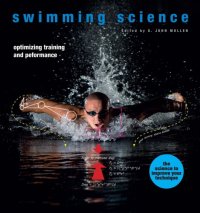
Ebook: Swimming Science Optimizing Training and Performance
Author: G. John Muller
- Genre: Physical Education and Sport
- Year: 2018
- Publisher: UNIV OF CHICAGO PR
- Language: English
- pdf
Swimming is often touted as one of the most accessible workouts—low impact, low tech, and beneficial at any stage of life. Yet each time you suit up and dive in, your body's moving parts must work together to propel you through dozens of pounds of water resistance, somehow emulating the movements of species that evolved specifically for the water. What are the physical forces at work when you get in a pool, and what determines whether you will sink or swim?
Writing to competitive and novice swimmers alike, contributors to this volume break down every aspect of the sport. Swimming Science covers physiology, psychology, and safety, as well as hydrodynamics, nutrition, and technique. Each chapter examines these topics through a series of practical questions. What are the forces acting on you when you swim, and how do your muscles best generate propulsion against those forces? How much protein, salt, and iron should a swimmer consume, and how does energy from carbohydrates compare to energy from fats? How important is the “swimmer's physique” in competitive swimming, and is technique or strength more necessary for generating speed? These questions are examined with the aid of explanatory diagrams and illustrations, and the book can be used to search for particular topics, or read straight through for a comprehensive overview.
Whether you are a competitive swimmer looking to optimize your performance or just beginning to dip a toe into the sport, Swimming Science is a must-read
DOWNLOAD FROM FREE FILE STORAGE
Writing to competitive and novice swimmers alike, contributors to this volume break down every aspect of the sport. Swimming Science covers physiology, psychology, and safety, as well as hydrodynamics, nutrition, and technique. Each chapter examines these topics through a series of practical questions. What are the forces acting on you when you swim, and how do your muscles best generate propulsion against those forces? How much protein, salt, and iron should a swimmer consume, and how does energy from carbohydrates compare to energy from fats? How important is the “swimmer's physique” in competitive swimming, and is technique or strength more necessary for generating speed? These questions are examined with the aid of explanatory diagrams and illustrations, and the book can be used to search for particular topics, or read straight through for a comprehensive overview.
Whether you are a competitive swimmer looking to optimize your performance or just beginning to dip a toe into the sport, Swimming Science is a must-read
DOWNLOAD FROM FREE FILE STORAGE
Download the book Swimming Science Optimizing Training and Performance for free or read online
Continue reading on any device:

Last viewed books
Related books
{related-news}
Comments (0)